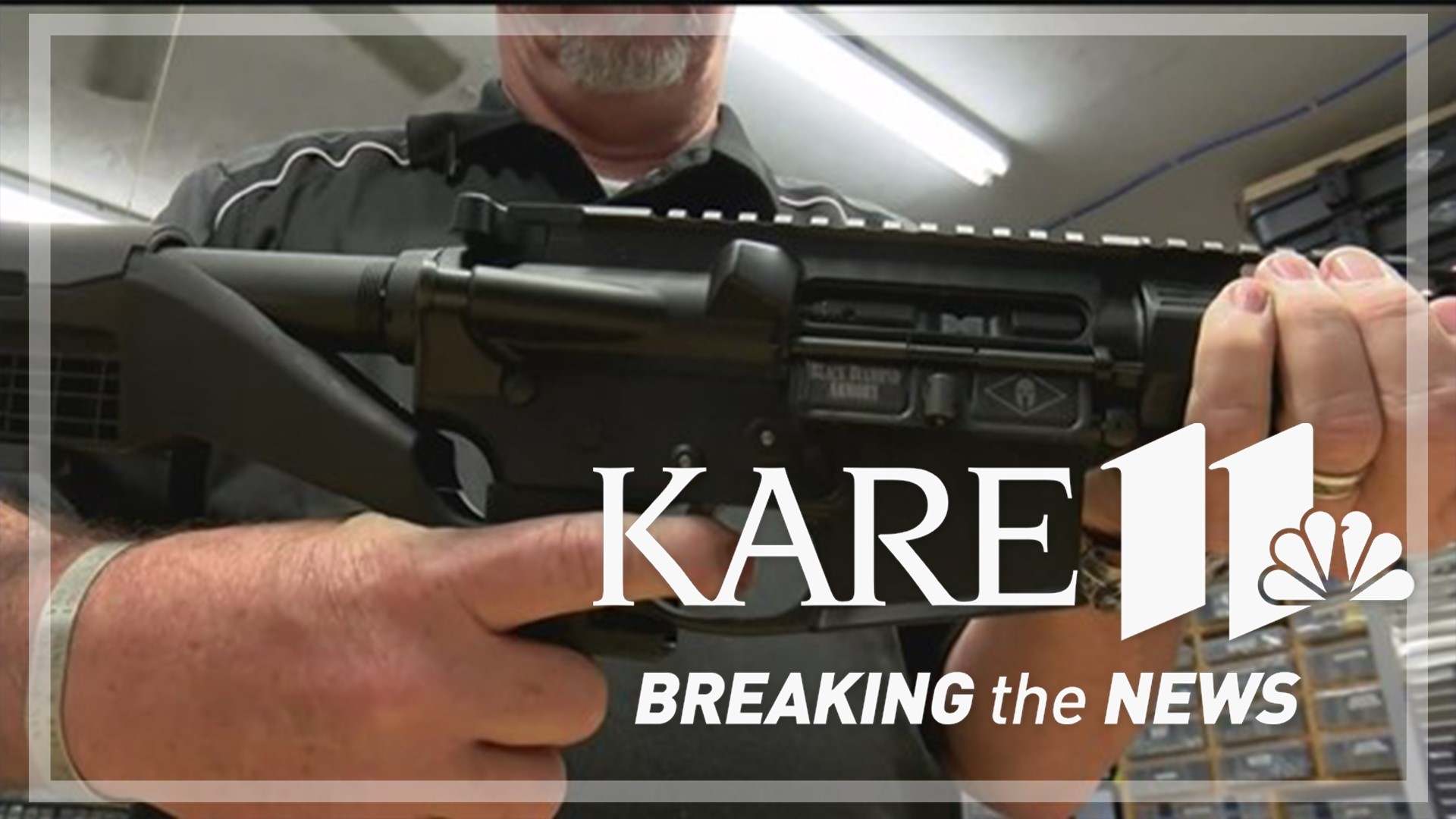ST PAUL, Minn. — Minnesota Democrats appear to have reached a consensus on two gun safety measures they have spent years working towards, universal background checks and a red flag law.
"I've been working on this issue since the election of 2002," said Sen. Ron Latz of St Louis Park. "This time I think they're going to pass."
The consensus appeared to come during a joint-House-Senate committee hearing on Wednesday night, as Democrats - who hold a majority in both chambers - were working to resolve differences within a massive public safety budget bill.
Background Checks
According to the proposed background check law, in order to eliminate loopholes that currently exist for private sales, the state would require a new permit for anyone who wants to buy a gun.
"In order to be a lawful purchaser of a firearm, an individual would have to apply for and qualify for a permit to purchase," Sen. Latz said.
To get that permit, you would need to apply through local law enforcement, which would conduct a criminal background check and check names against mental health commitment records.
Once the permit is issued, it would be valid for one year, with no limitations on the number of guns someone purchases. But the permit would need to be presented for each sale.
"Then the seller would have to maintain records of the transaction for 10 years in case there is some criminal investigation," Latz said.
There would be some exemptions from the permit requirement for transfers between family members and other limited considerations.
Red Flag Law
If passed, Minnesota would join at least 19 other states in instituting a red flag law, otherwise known as an extreme risk protection order.
The measure would allow for family members or law enforcement to petition a judge to order the immediate removal of guns if someone poses an imminent threat to themselves or others. If granted, the person would be granted a formal hearing within 14 days.
If the threat is not deemed imminent, a judge would call a hearing before making a decision on the order.
"In either case, once there is an order in place if the firearms are removed, the subject of the order has the right - every six months - to go in and ask the court to re-evaluate the situation and return their firearms," Latz said. "It's called a red flag law because in most instances there are signs out there, red Flags that a person is undergoing a crisis and may be undergoing a crisis and may be threat to themselves or others around them."
Red Flag Law History
Though many states have passed red flag laws in response to mass shootings in recent years, they've been around for more than 20.
Michael Lawlor worked to pass the country's first red flag law as a legislator in Connecticut back in 1999.
That law came about after a mass shooting at a state lottery office in 1998.
"The shooter's parents were very concerned about his emotional well-being," Lawlor said. "He attempted suicide, he was acquiring a lot of guns, and they called the police. But the police said there's really nothing we can do because he hasn't broken any law."
At the time, Lawlor says gun owners and the NRA fought the law, calling it the 'turn in your neighbor plan' but in the years since, as the number of mass shootings increased, both blue and red states alike have followed suit.
"Indiana was the second state to pass a red flag law," Lawlor said. "Florida, surprisingly, passed a red flag law in the aftermath of the Parkland shootings and under their law, which is very broad, police immediately were using it thousands of times and so I think that's more permissive, for sure, than Connecticut's is."
Lawlor points out that the law in Connecticut was largely unused, due to confusion about how to use it, until after the shooting at Virginia Tech in 2007.
Though implementation and use of the law can still vary greatly, even between counties, he says each high-profile mass shooting that followed, seemed to lead to more understanding and use of the law by law enforcement.
"If you had read these warrants (in Connecticut), as I have, you would see that in almost case it was clearly a tragedy about to happen, maybe it would have been a suicide, maybe a homicide, or maybe a murder-suicide," Lawlor said.
Pushback from Gun Owners
Though numerous polls have shown broad support for universal background checks and red flag laws among voters in Minnesota and nationwide, on Thursday, several Republicans - along with the Minnesota Gun Owners Caucus - criticized the decision to include the gun measures within the public safety budget bill.
The group accused Democrats of using the tactic to avoid up or down votes on the measures in the Senate, to try to shield Democrats from rural areas. Since the DFL holds just a one-seat majority in the Senate, the Gun Owners Caucus is still pushing those senators to vote against the bill.
“We’ve been sounding the alarm on this ineffective and unconstitutional legislation all session, but the time for action is now," said Bryan Strawser, Chairman of the Minnesota Gun Owners Caucus.
Watch more Breaking The News:
Watch all of the latest stories from Breaking The News in our YouTube playlist:

